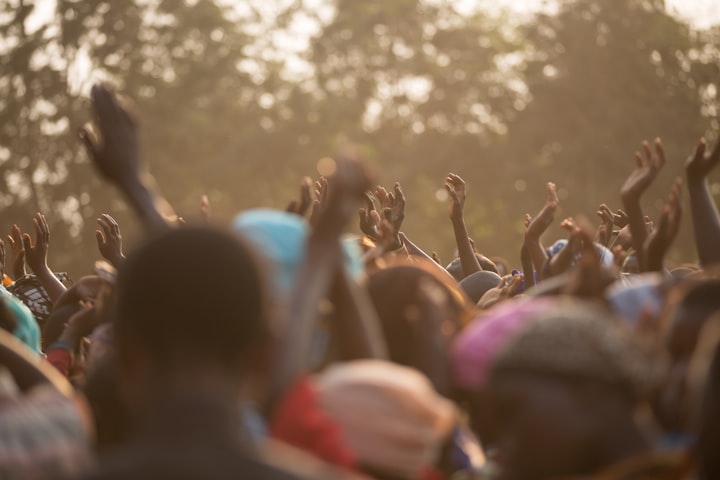Understanding COUPS in Africa
Causes, Consequences, and the Quest for Stability

Africa, a continent known for its rich cultural diversity and abundant natural resources, has also been a region marred by political instability throughout its history. One of the most common manifestations of this instability is the occurrence of coups d'état, or simply "coups." In this article, we will delve into the complex phenomenon of coups in Africa, exploring their causes, consequences, and the ongoing efforts to promote political stability on the continent.
I. The Anatomy of a Coup
A coup d'état is a sudden and often violent overthrow of a government, typically carried out by a faction within the military or other state institutions. While the methods and motivations behind coups can vary widely, there are some common elements that often characterize these events:
Motivations: Coups are usually driven by a combination of political, economic, and social factors. These motivations can range from a desire for power and control to dissatisfaction with the current leadership's policies or corruption.
Key Actors: The primary actors in a coup are often members of the military, intelligence agencies, or other security forces. These individuals have the training, resources, and organization necessary to carry out such a dramatic action.
Timing: Timing is crucial in coup attempts. They often occur during periods of political turmoil, economic crisis, or when there is a perceived power vacuum. The element of surprise is typically a key factor in their success.
Secrecy: Successful coups are usually planned and executed with a high degree of secrecy to minimize the risk of detection and intervention by loyalist forces.
Communication: Coups often involve the seizure of key communication infrastructure such as radio and television stations to control the narrative and announce the coup to the public.
International Reaction: The international community's response to a coup can vary. Regional organizations, like the African Union, and global powers, such as the United Nations, may condemn the coup and impose sanctions on the perpetrators.
II. Historical Context of Coups in Africa
The history of coups in Africa is extensive and complex, with many countries experiencing multiple coup attempts over the years. Some of the key factors contributing to the prevalence of coups in Africa include:
Colonial Legacy: Many African nations gained independence from colonial powers in the mid-20th century, often without a long history of democratic governance. This legacy of colonial rule left a political vacuum that has at times been filled by military regimes.
Weak Institutions: The weakness of state institutions, including the judiciary and civil service, has made African countries susceptible to coups. Weak institutions can foster corruption and ineffectiveness, leading to dissatisfaction among the population.
Resource Curse: The presence of abundant natural resources, particularly oil and minerals, has been both a blessing and a curse for many African nations. The competition for control over these resources has sometimes fueled coups and civil conflicts.
Ethnic and Tribal Divisions: Ethnic and tribal divisions within countries have often been exploited by coup plotters to gain support from specific groups. This can further exacerbate political instability.
External Interference: Foreign powers have sometimes played a role in instigating or supporting coup attempts for their own geopolitical interests. This has further complicated the political landscape in Africa.
III. Consequences of Coups in Africa
Coups can have far-reaching and often devastating consequences for African nations. Some of the most significant impacts include:
Political Instability: Coups disrupt the political order and can lead to extended periods of instability, as new governments often struggle to establish legitimacy.
Economic Disruption: The uncertainty surrounding coups can deter foreign investment and disrupt economic activities, leading to economic downturns.
Human Rights Violations: Coups are often accompanied by human rights abuses, including arbitrary arrests, torture, and extrajudicial killings.
Refugee Crisis: Coups and the ensuing conflicts can trigger refugee crises as people flee violence and instability.
International Isolation: Countries that experience coups are often subject to international sanctions and isolation, which can further damage their economies and diplomatic relations.
Long-Term Instability: Coups can set in motion a cycle of political instability, with subsequent coup attempts becoming more likely.
IV. Efforts to Prevent and Respond to Coups in Africa
Addressing the issue of coups in Africa requires a multifaceted approach that includes both preventive measures and responses to ongoing crises. Some key strategies and initiatives include:
Promotion of Democracy: Encouraging democratic governance and strengthening democratic institutions is a long-term solution to coup prevention. This includes promoting free and fair elections and supporting civil society organizations.
Conflict Mediation: Regional organizations like the African Union and sub-regional bodies play a crucial role in mediating conflicts and preventing coups. They can provide diplomatic solutions and sanctions when necessary.
Economic Development: Addressing the economic root causes of coups, such as poverty and inequality, can help reduce the motivation for military intervention.
Security Sector Reform: Reforming the security forces to ensure civilian control, professionalism, and accountability can reduce the likelihood of military involvement in politics.
Diplomatic Pressure: The international community can use diplomatic pressure, including sanctions, to discourage coup attempts and support legitimate governments.
Peacekeeping Missions: Deploying peacekeeping missions in conflict-prone regions can help stabilize situations and create conditions for political dialogue.
Conclusion
The occurrence of coups in Africa is a complex and multifaceted issue deeply rooted in historical, political, and economic factors. While the continent has made significant strides in promoting democratic governance and peace, the threat of coups still looms in some regions. Efforts to prevent and respond to coups must continue to be a priority for both African nations and the international community. The ultimate goal is to create a stable and prosperous Africa where political power transitions occur through peaceful and democratic means, rather than through the barrel of a gun.
About the Creator
Sheriff Adeyemi Jinadu
I am synonymous with determination and ambition, am a multifaceted individual whose life journey reflects a commitment to constant growth and a desire to make a positive impact on the world.






Comments
There are no comments for this story
Be the first to respond and start the conversation.